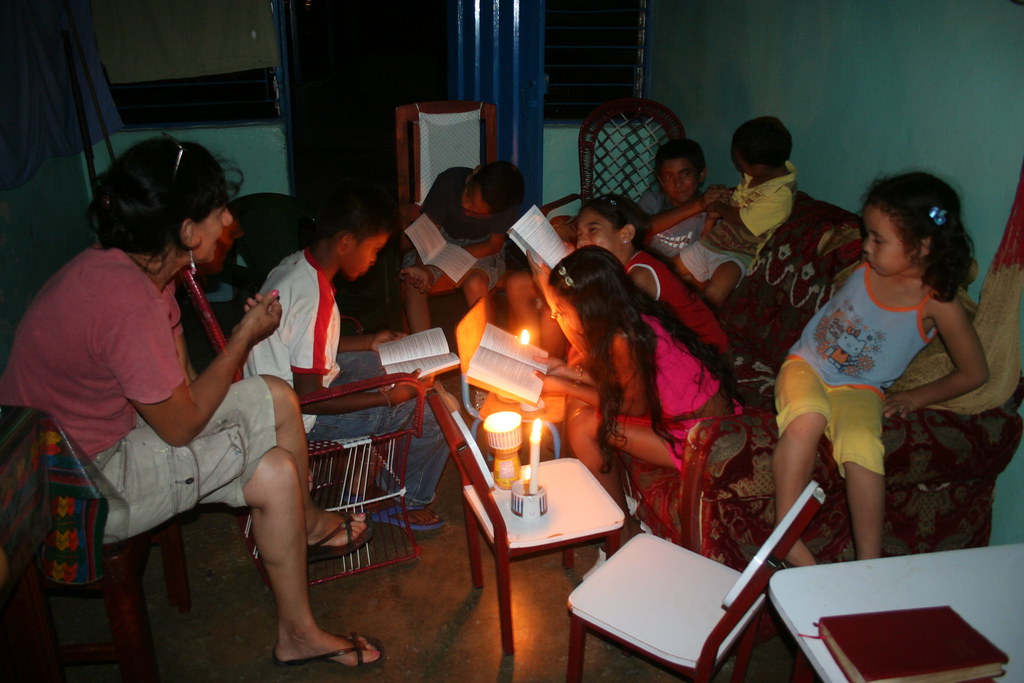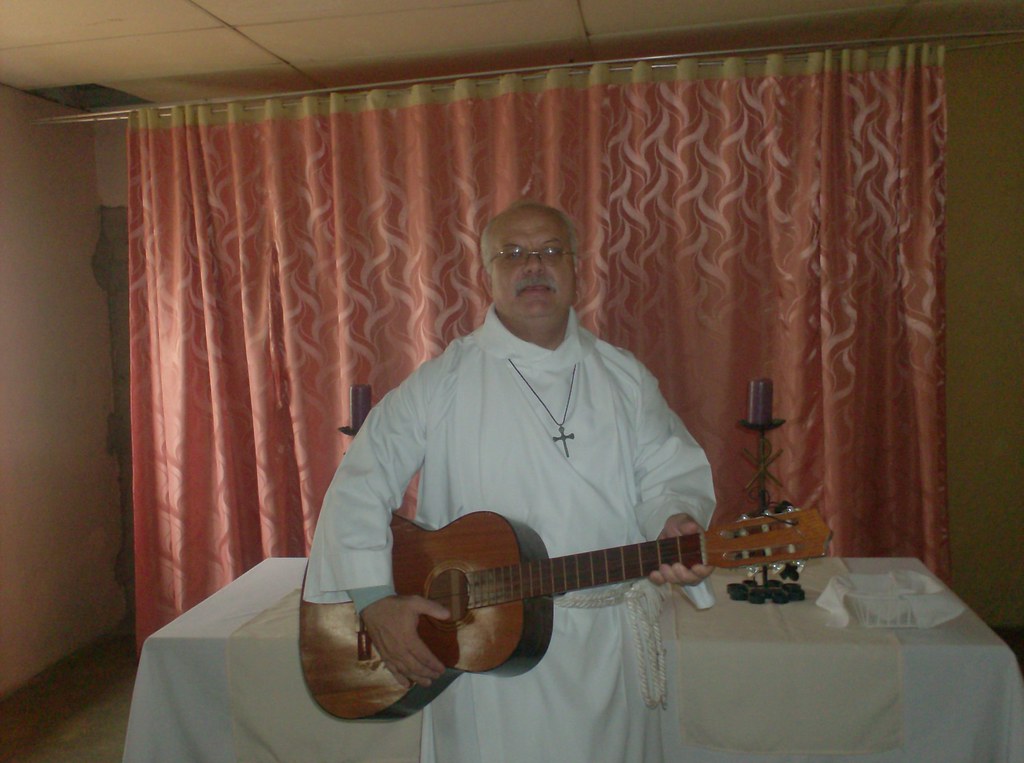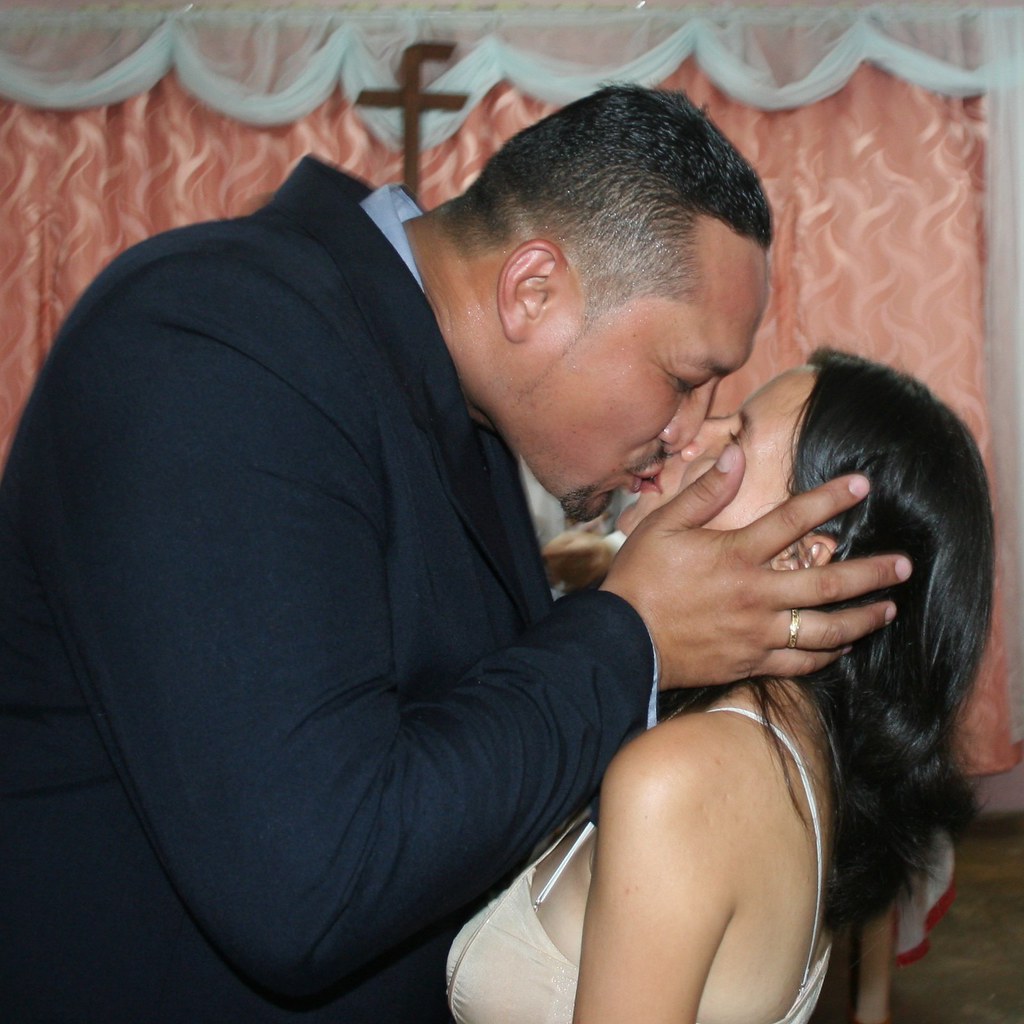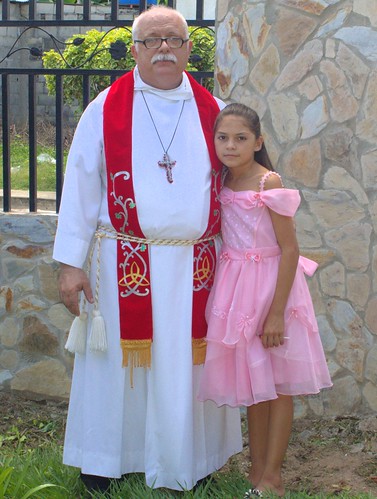 Here is the English text of the sermon that I preached for the confirmation and first communion of Gianny Vanessa Roa Ruiz. It was based on Proverbs 9:1-10 and Luke 14:15-24, the appointed Old Testament and Gospel readings for the second Sunday after Trinity, according to the one-year lectionary.
Here is the English text of the sermon that I preached for the confirmation and first communion of Gianny Vanessa Roa Ruiz. It was based on Proverbs 9:1-10 and Luke 14:15-24, the appointed Old Testament and Gospel readings for the second Sunday after Trinity, according to the one-year lectionary. Grace and peace in our Lord and Savior, Jesus Christ.
Many of you are here at the invitation of our sister, Gianny Vanessa Roa Ruiz, because today is the day of her confirmation and first communion She wants to share her joy with you.
We find an invitation in our reading of the Old Testament. "Wisdom has built her house, hewn out its seven pillars killed her victims, mingled her wine, and set her table. She has sent her maids on the topto the rooftops of the town to cry, Whoever is simple, come here.”
In the book of Proverbs, the concept of wisdom is symbolized by the figure of a woman. In chapters before the ninth, is the contrast between the figure of Wisdom, who is good, and a tempting adulteress. These women represent two lifestyles, or two ways. Wisdom is the way of the Lord, that is, how to live according to the will of God. This is the way of happiness that lasts forever. The other is the path of destruction, in which there is the promise of many vain pleasures, but in the end is only a trap.
There is something more, because in our text for today we have a picture of a great feast, prepared by the figure of wisdom with an invitation for everyone. "Come, eat my bread, and drink the wine I have mixed." T his is a foreshadowing of Jesus Christ, who would be the true incarnation of divine wisdom and who has invited us to eat bread and drink wine, and also His body and blood in the Lord's Supper.
Furthermore,in our gospel for today, our Lord tells a parable, ie a symbolic story, of a man who prepared a great banquet and invited many. "And at the time of the banquet he sent his servant to say to those invited, Come, for everything is now ready."
But what happened? "And they all began to make excuses. The first said: I have bought a field, and I must go and see it: I pray thee have me excused. And another said, I have bought five yoke of oxen, and I'll try them out, excuse me. And another said, I have married a wife, and therefore I cannot go. "
What was Jesus talking about in this parable? Obviously, the father of the family is God the Father Almighty. His feast is eternal life in heaven. Why do so many refuse the invitation? They do not see with eyes of faith the invitation to hear the word and receive the sacraments as a preview of the eternal feast in heaven. They are preoccupied with their businesses or their own personal matters. The same contrast is found in the book of Proverbs. Earthly affairs often seem more urgent or more attractive than seeking first the kingdom of God. However, the wise man, his mind enlightened by the Holy Spirit, understands that heavenly joy lasts forever, not just for the moment.
Furthermore, although the invitation to the Lord's Supper is free and for all, it is available only for a while. When our earthly life is over, so is the invitation and there is no second chance.
Look, many of you have received an invitation card for a wedding. The invitation is a gift for you. It's yours. Nobody can offer money to buy an invitation to a wedding. But what if someone takes an invitation card and throws it in the trash? He is not likely to get another invitation.
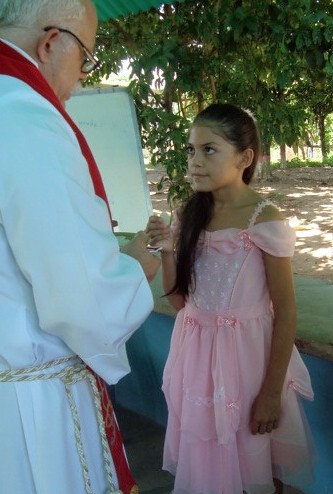 It is a more serious matter with the invitation to the Lord's
Supper. We speak of the two kingdoms, the kingdom of God's power nd the
kingdom of God's grace. The kingdom of divine power is the order of
creation, the domain of His Law. The moral Law is the universal will of
God for our lives. All humans are suubject to this Law and only one has
fulfilled the Law, the will of God, perfectly. Therefore, to live under
the Law is a sentence of physical and spiritual death.
It is a more serious matter with the invitation to the Lord's
Supper. We speak of the two kingdoms, the kingdom of God's power nd the
kingdom of God's grace. The kingdom of divine power is the order of
creation, the domain of His Law. The moral Law is the universal will of
God for our lives. All humans are suubject to this Law and only one has
fulfilled the Law, the will of God, perfectly. Therefore, to live under
the Law is a sentence of physical and spiritual death.However, one has fulfilled all the Law in our place, Jesus Christ. He paid the price for our sins, so we have our invitation to share in the joy of the Lord's Supper. One day we will be with Him in heaven, but in this world we have the opportunity to receive His body and blood in, with and under the bread and wine of the sacrament. "Do this in remembrance of me" does not just mean looking back to the first century, but also to anticipate the great feast with the church triumphant after the end of the world.
We have eternal life only by grace. No one can buy it and nobody earns eternal life on their own merits, however, we may decline the invitation and there is no other chance to escape eternal death.
We receive eternal life by faith alone through baptism. By our baptism, we are members of the body of Christ, the communion of saints, which is the church. The Bible says the invitation to baptism is for all nations, all families, men, women, old, young and babies. Why not share the sacrament with everyone?
In the Lutheran Church, we recognize only two sacraments, not seven as does the Roman Catholic church. By our definition, a sacrament should be instituted and commanded by our Lord Jesus Christ, should be a means of grace (forgiveness), and must have a visible element linked with the Word of God. In the case of baptism, the visible element is water, in the Lord's Supper the visible elements are the bread and wine.
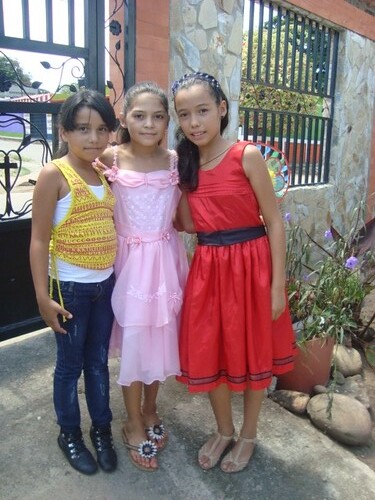 Confirmation is not a sacrament, it does not give a measure of grace
that baptism that does not deliver. It is a ritual that marks the
culmination of the preparation for first communion. The difference
between the sacrament of baptism and the Lord's Supper is the warnings
that to receive the Lord's Supper worthily, a person must examine his
conscience and consciously repent of his sins, and discern the body and
blood of Christ in the sacrament. To receive the sacrament unworthily is
to receive condemnation, not a blessing.
Confirmation is not a sacrament, it does not give a measure of grace
that baptism that does not deliver. It is a ritual that marks the
culmination of the preparation for first communion. The difference
between the sacrament of baptism and the Lord's Supper is the warnings
that to receive the Lord's Supper worthily, a person must examine his
conscience and consciously repent of his sins, and discern the body and
blood of Christ in the sacrament. To receive the sacrament unworthily is
to receive condemnation, not a blessing.
So we teach these things to young believers with the Small Catechism of Dr. Martin Luther, written for parents to teach their children. The catechism contains the Ten Commandments, the Apostles' Creed, the Our Father and basic doctrine. Confirmation is a public testimony of faith and a sign that the believer is ready to receive the sacrament.
Now our sister, Gianny Vanessa, has chosen the better portion, like Mary of Bethany. She is a wise girl. Let's welcome her as a communicant member.
.
The peace that passes all understanding be with each of you forever. Amen.




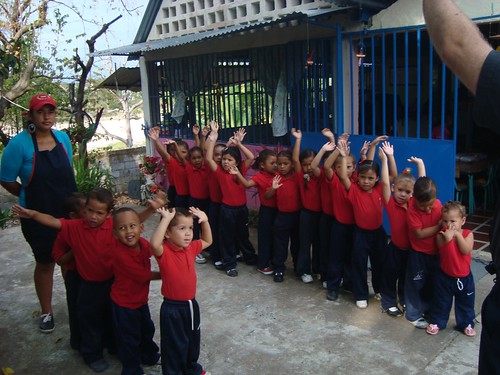
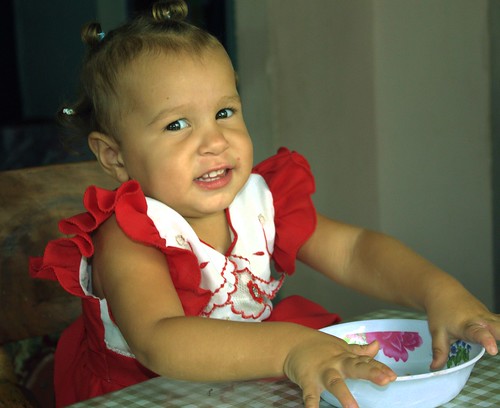
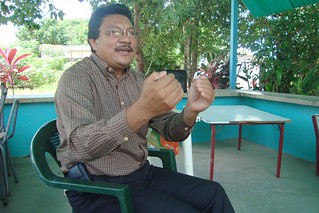



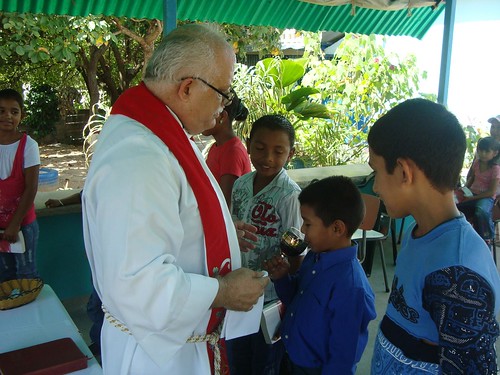
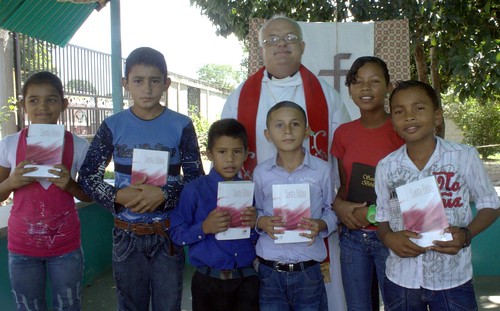

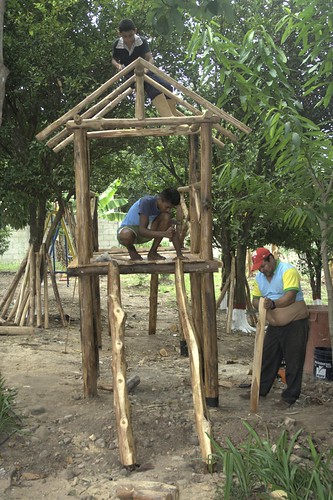
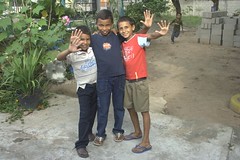
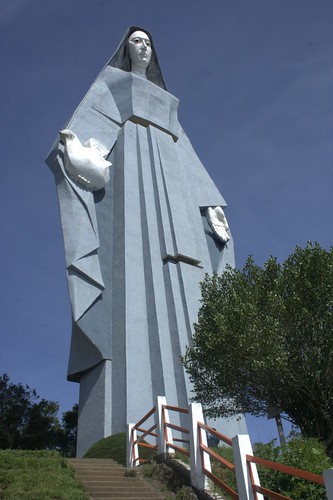



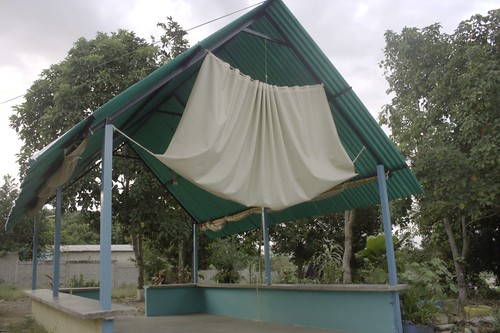

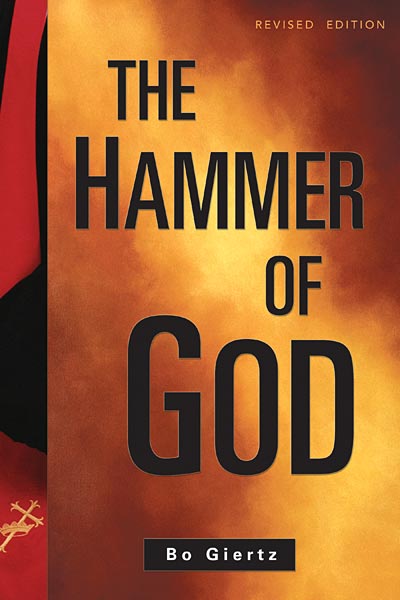
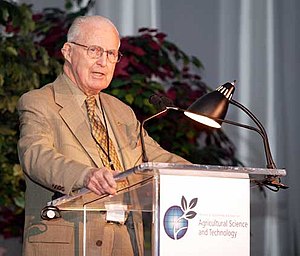
![Reblog this post [with Zemanta]](http://img.zemanta.com/reblog_e.png?x-id=8a35e4e1-ee7e-480f-94d7-d44378a6ceea)
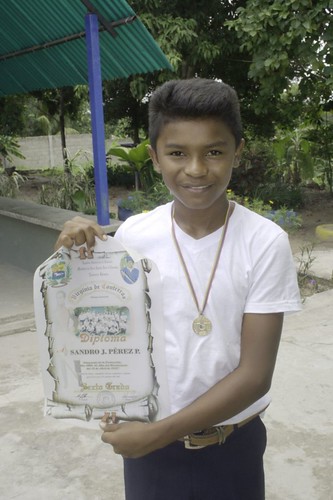
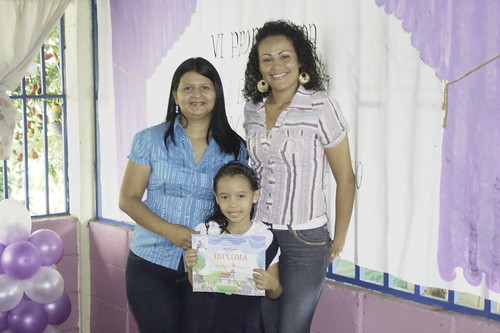
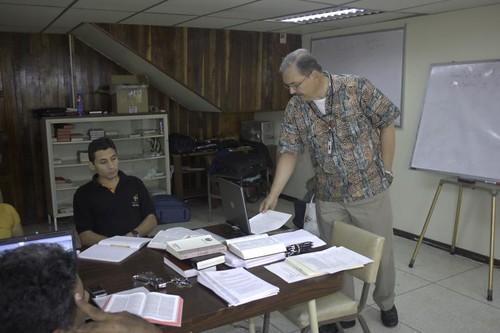
![Reblog this post [with Zemanta]](http://img.zemanta.com/reblog_e.png?x-id=806cdf2f-80cc-4106-b140-7305e17b6fe0)
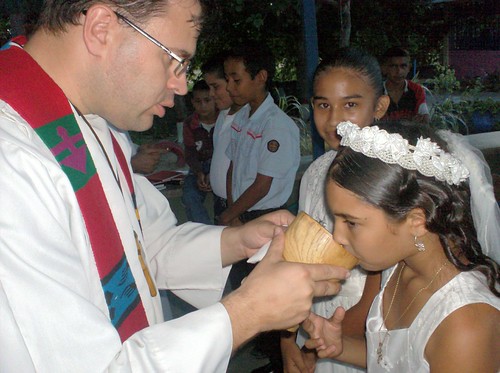
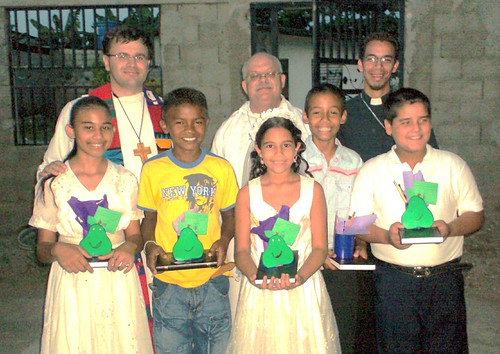
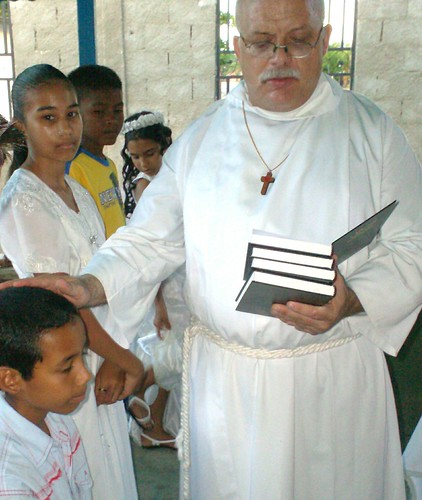



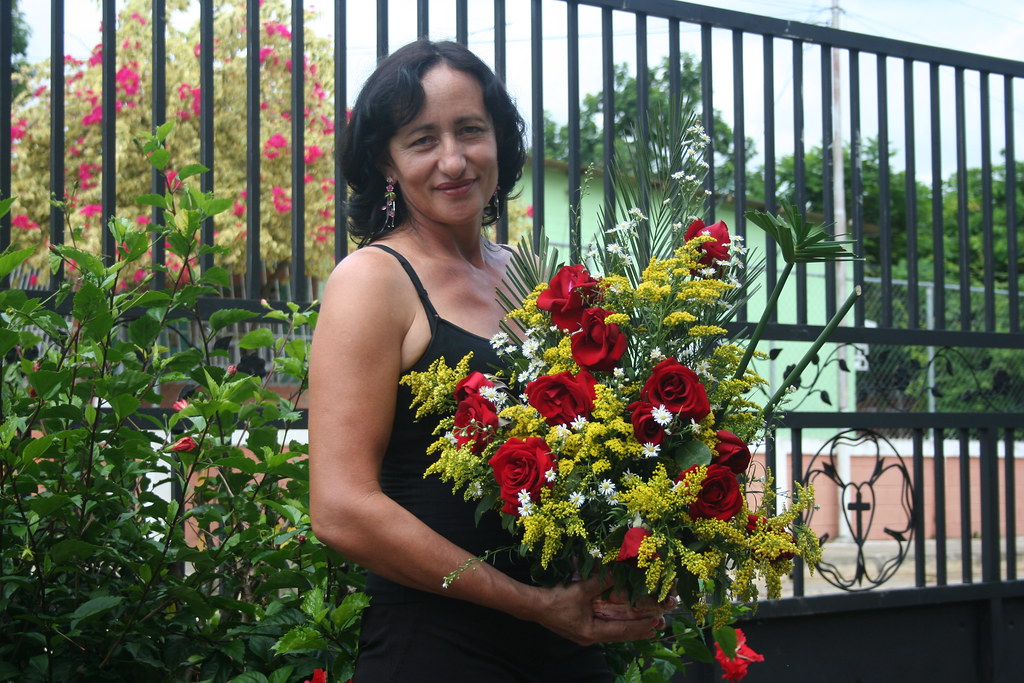
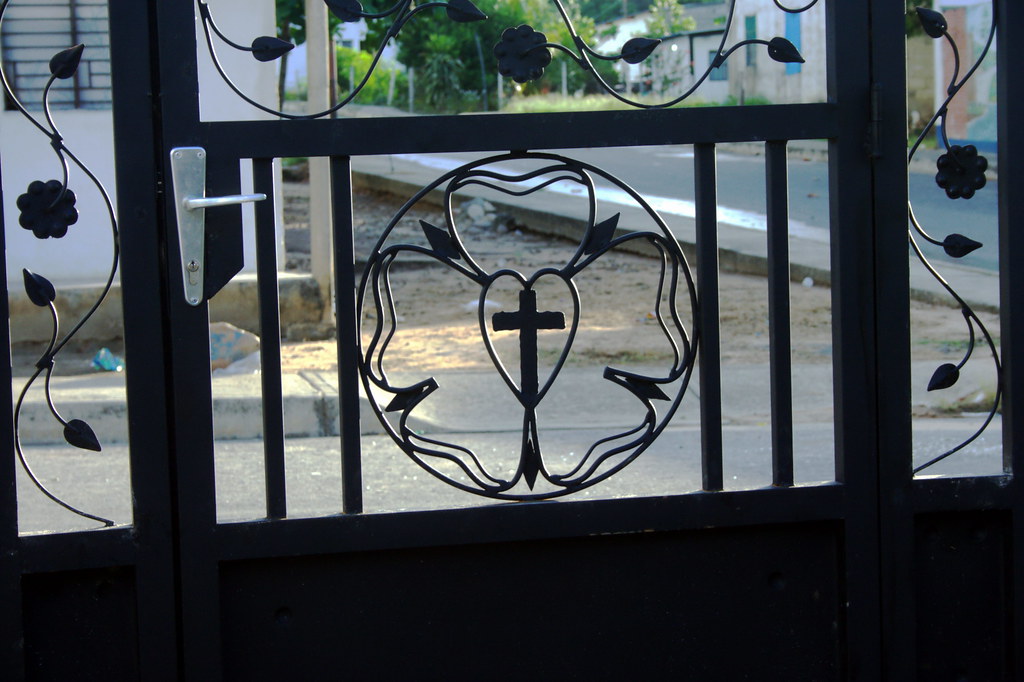
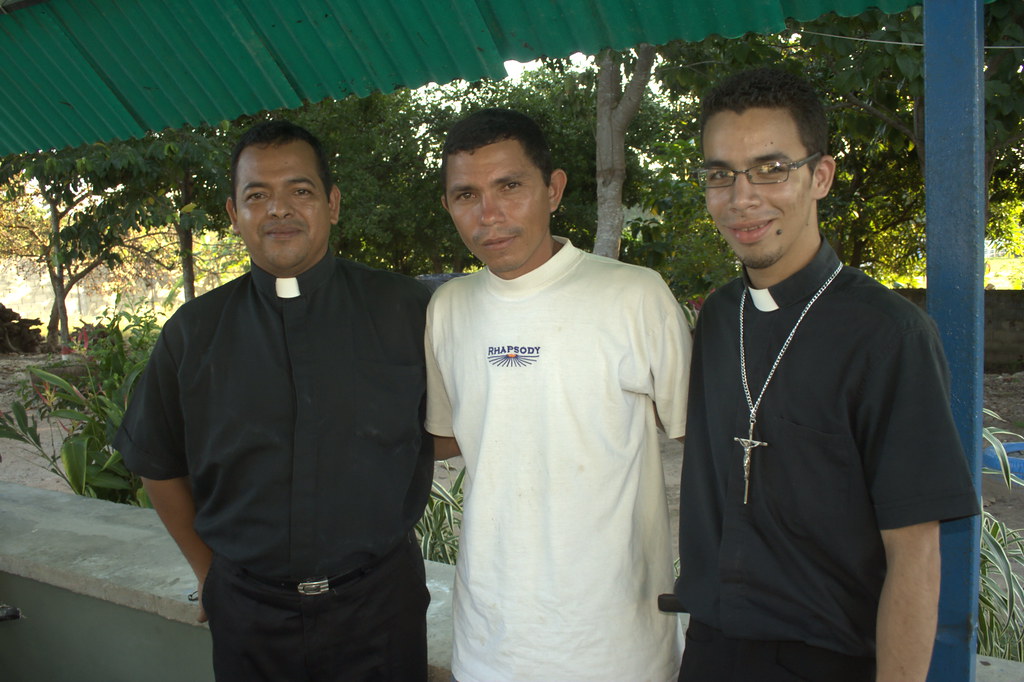 On Sunday, October 19, Pastor Adrian Ventura, president of the Lutheran Church of Venezuela, visited Barinas. That morning at Corpus Christi Lutheran Church, Eduardo played the guitar, I led the opening Service of the Word, and Pastor Adrian preached and administered the sacrament of Holy Communion. His sermon was excellent, but perhaps the most notable aspect of the service was that as it was underway, Venezuela experienced its
On Sunday, October 19, Pastor Adrian Ventura, president of the Lutheran Church of Venezuela, visited Barinas. That morning at Corpus Christi Lutheran Church, Eduardo played the guitar, I led the opening Service of the Word, and Pastor Adrian preached and administered the sacrament of Holy Communion. His sermon was excellent, but perhaps the most notable aspect of the service was that as it was underway, Venezuela experienced its 